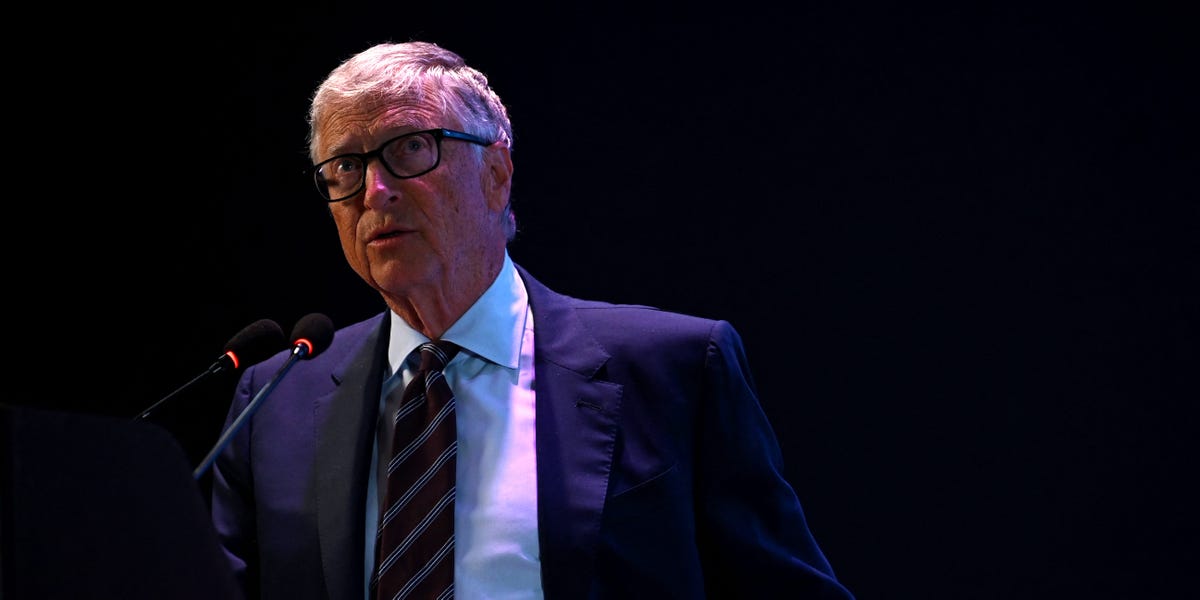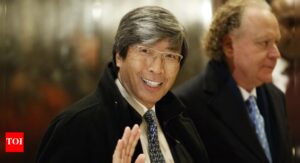Bill Gates Highlights AI’s Potential to Address Shortages in Two Important Professions

Bill Gates on the Future of Work: AI’s Role in Healthcare and Education
Introduction to AI’s Impact on Employment
Bill Gates recently expressed his belief that the ongoing shortage of doctors and teachers could soon be addressed with the help of Artificial Intelligence (AI). Speaking on the "People by WTF" podcast, Gates suggested that AI could significantly bridge the gaps in these crucial sectors. He pointed out that many countries, including India and various nations in Africa, continue to struggle with a lack of medical professionals.
The Doctor Shortage in the U.S.
In the United States, the issue is also pressing. The Association of American Medical Colleges previously estimated that the U.S. could face a shortage of up to 86,000 doctors, including both specialists and primary care providers, by the year 2036. Michael Dill, who directs workforce studies at the organization, highlighted that to provide equitable care to all individuals, including minorities, the uninsured, and those in rural areas, the nation needs a significantly larger medical workforce.
A notable concern is the dwindling number of specialists in geriatric care, which is crucial as the population ages. Reports suggest that this could lead to a crisis in the quality of care available to older patients.
How AI Can Help in Healthcare
In response to burnout and workload challenges in healthcare, numerous AI startups have emerged, attracting billions of dollars in funding. Companies such as Suki, Zephyr AI, and Tennr propose that AI can alleviate some of the burdens on medical professionals by automating routine tasks like billing and documentation, improving the accuracy of diagnoses, and identifying patients for new treatments. According to McKinsey, generative AI might boost productivity in the healthcare and pharmaceutical sectors by up to $370 billion.
The Teacher Shortage: A Parallel Challenge
Education systems are facing similar staffing challenges. In the U.S., federal data from 2023 revealed that 86% of public K-12 schools reported difficulties in hiring teachers for the 2023-24 school year, and about 45% reported being understaffed. In the UK, some schools, such as David Game College in London, have begun integrating AI tools like ChatGPT into their classrooms to assist students in exam preparation. This pilot program involved 20 students using AI for core subjects including English and math.
Despite concerns regarding potential cheating, many educators are optimistic about AI’s ability to save teachers time and enhance student learning, especially in increasingly difficult staffing conditions.
The Broader Implications of AI in Manual Labor
Gates also mentioned that AI could impact various manual labor jobs beyond the fields of healthcare and education. From manufacturing workers and construction crews to hotel staff, the implications of AI’s advancement could affect many sectors that rely on physical skills.
Tech companies, including giants like Nvidia, are investing heavily in humanoid robots capable of performing tasks such as warehouse work and cleaning. The aim is to reduce labor costs and enhance operational efficiency.
Rethinking Work in the Age of AI
Gates envisions a future where the concept of work may undergo significant change. This could lead to shorter work weeks and the possibility of early retirement for many. He noted that society may need to rethink how time is utilized, as technological advancements change traditional work structures.
Drawing from historical perspectives, Gates referenced economist John Maynard Keynes, who predicted in 1930 that technological progress could eventually reduce the workweek to just 15 hours. Yet, almost a century later, the average workweek remains around 40 hours for most individuals.
Gates shared a personal insight, stating that while he doesn’t have to work, he chooses to do so because he enjoys it. This sentiment suggests that the evolving landscape of work may reshape our understanding of employment, purpose, and leisure.






